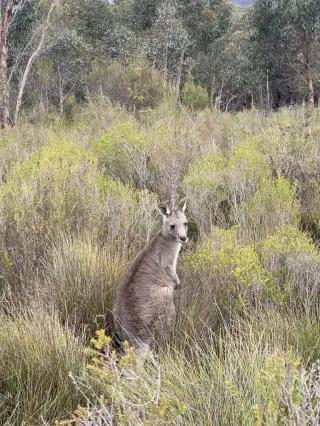
Hi. I'm Tam. Your candidate for Southern grampians council 2024.
A resident of Victoria Valley, a member of the CFA, an anthropologist and former paramedic, I am ready to listen to you. My deep wish is to serve all of you here, in the magnificent Gariwerd area, to ensure that we, along with our companions of wildlife and nature, thrive well into the future.

I'm Tam and am here to serve you.
I have collaborated with individuals worldwide, bridging cultural, linguistic, political, gender, and even interspecies divides. My passion for fostering harmony in every moment inspired me to dedicate my life to this mission decades ago. With my skills and experiences, I am confident in my ability to help our council support you in achieving wellbeing, security, and fulfillment.
innovation, integrity, unity
Road Safety
I am committed to improving the state of our roads, and implementing appropriate speed limits, ensuring that wildlife, cars, cyclists and pedestrians can all travel safely. This will enable everyone to enjoy the beautiful Gariwerd landscape happily improving safety for all residents - human and non-human alike
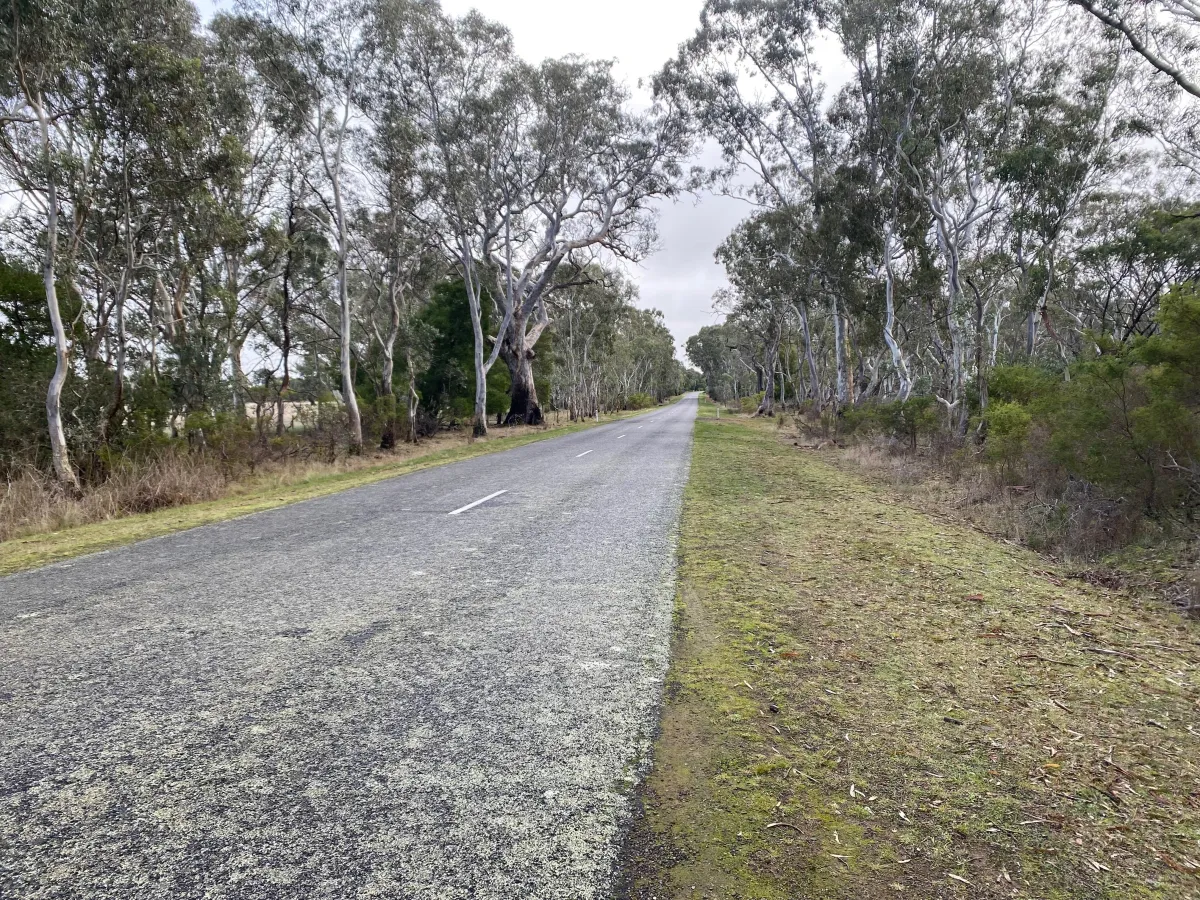

Community Wellbeing and Mental Health
Engaging in forest therapy, outdoor play, and
earth connection practices has been shown to reduce anxiety, increase self-esteem, and offer physical benefits like improved immunity. There are many creative ways to connect with nature, fostering emotional resilience and wellbeing. Integrating these practices into mental health support services, creates opportunities for personal growth and wellbeing.
Local Innovation and Eco-Tourism
Supporting sustainable local businesses and eco-tourism in Southern Grampians celebrates our natural assets while fostering economic growth. By embracing ethical and environmentally sustainable practices, local businesses can thrive alongside the region’s biodiversity. Eco-tourism attracts visitors who respect and contribute to the care of our landscapes and wildlife. Through these sustainable efforts, we can build a resilient economy that honours both the land and our community for future generations.
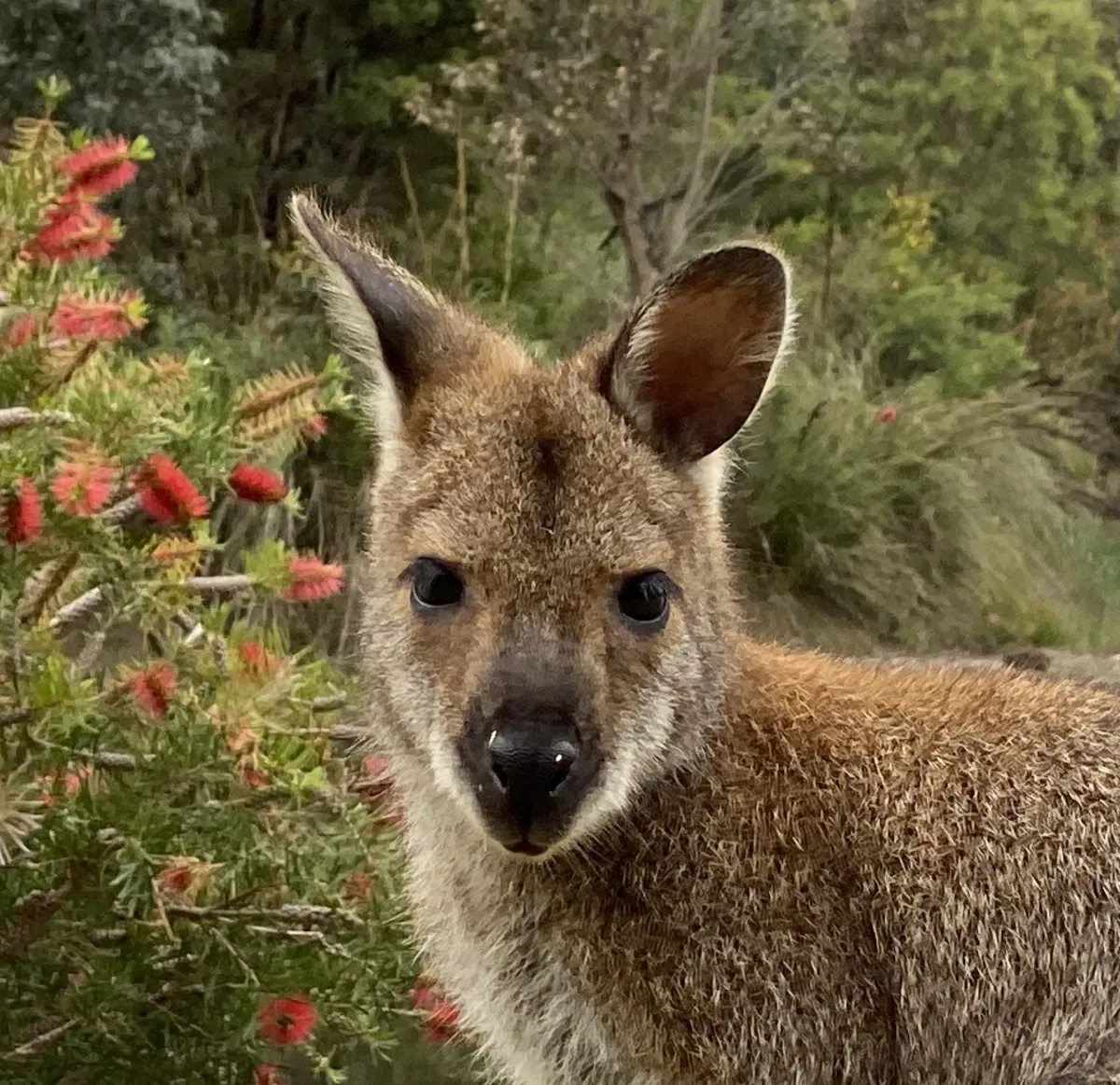
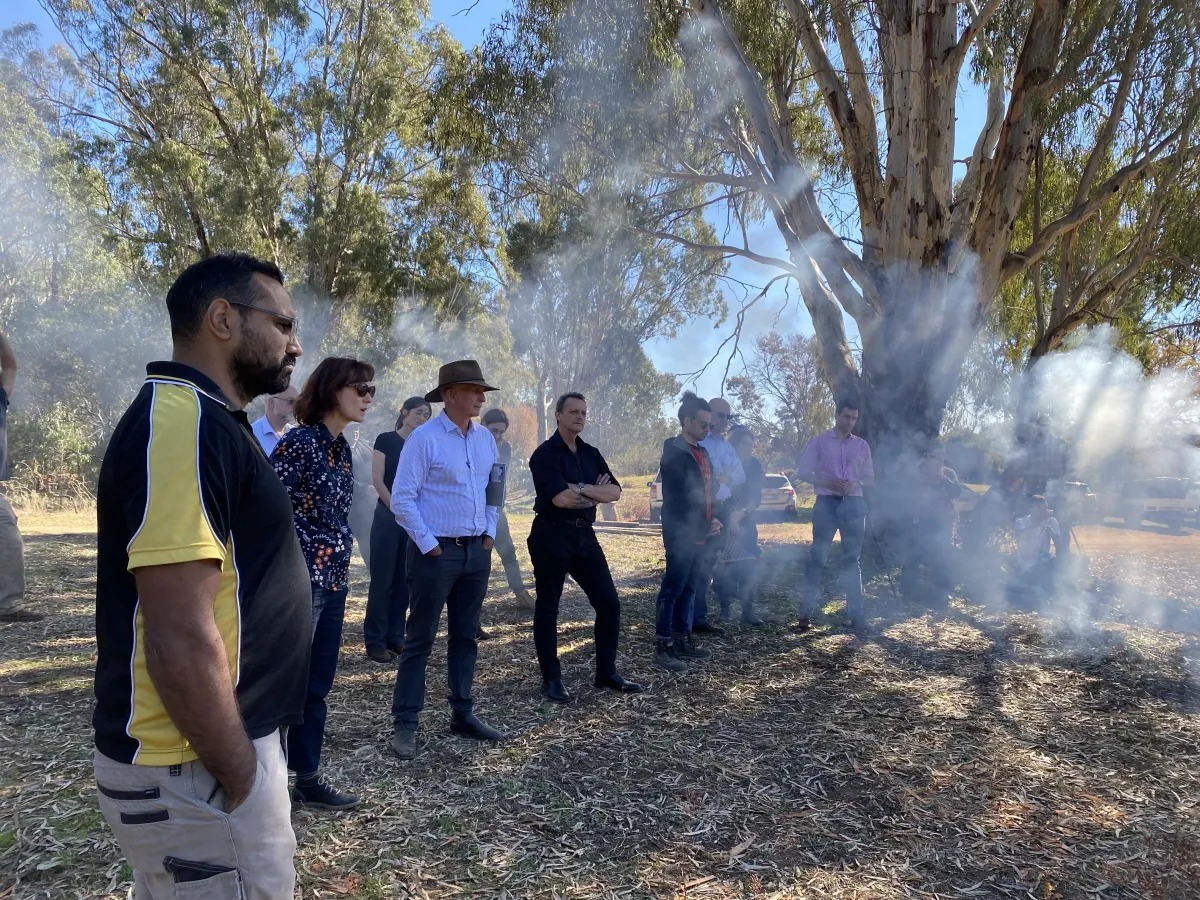
Protecting Country through culture
By embracing First Nations land management practices like firestick farming, we can strengthen and protect the land while reducing bushfire risks. These traditional methods, combined with reforestation and biodiversity efforts, help preserve native habitats and safeguard our environment. Through this partnership, we honor both cultural heritage and the natural world, ensuring a sustainable future for all.
My Work
Community Leadership & Advocacy
I began my career as a paramedic in Melbourne in the 1990s, later working at Global Hospital and Research Centre in Rajasthan, India, where I taught pre-hospital emergency care to village leaders and was part of the disaster response team for the South East Asian Tsunami. While at the United Nations in New York, I became an EMT and volunteered with the American Red Cross in disaster and emergency relief. My leadership and advocacy work, both locally and internationally, have focused on integrating traditional practices with modern healthcare, promoting wellbeing through nature-based activities, and ensuring civil society voices are heard on the global stage.
These experiences, combined with my role as a senior policy advisor at the Parliament of Victoria, equipped me with a strong foundation in policy writing, legislative processes, and crafting effective submissions. This has allowed me to merge my hands-on work with impactful policy advocacy.
Environmental Sustainability
From an early age, I was immersed in environmental sustainability. My father co-founded the Bega District Forest Action Council in the 1970s when-as a toddler-I felt deeply connected to animals and forests. This connection extended to my work at the UN, where I represented civil society at conferences like COP and Rio+20. There I saw the devastating environmental impacts of how non-human animals are treated, yet is rarely addressed. Since then, animal welfare has been central to my advocacy. I’ve also gained valuable knowledge from First Nations communities. Experiencing Firestick Farming on Yorta Yorta Country inspired me to co-found the Gariwerd Animal Biodiversity Alliance (GABA) in 2021, where we advocate for animals and biodiversity. I now serve as president of GABA, continuing this vital work.
Public Health & Wellbeing
I am a certified
Wayapa Wuurrk Practitioner
and currently training as a
Forest Therapy guide, both of which are proven to reduce anxiety and improve overall physical and emotional wellbeing. Wayapa, in particular, helps individuals reconnect with Country and their personal earth ancestry, fostering a deep sense of belonging. With over 40 years of meditation practice, I understand how essential our connection to nature is for our health. I’ve been fortunate to lead small meditation retreats where I incorporate nature-based activities to promote mental, emotional, spiritual, and physical wellbeing—a truly fulfilling aspect of my life.
FAQS
What is your attitude towards animal farming in the Western District?
My intention towards sheep and other animal farmers in the region is to work collaboratively to find solutions that benefit farmers, animals, and the environment. I understand that animal farming plays a role in the Southern Grampians economy. My vision is to create a future where farms are resilient, not just in terms of economic challenges and climate change but also in their commitment to outstanding animal welfare standards. By promoting sustainable agricultural practices, we can protect the land and ensure that the welfare of animals is at the heart of farming operations. I aim to support farmers by helping them diversify income streams, whether that’s through eco-tourism or sustainable farming practices, while simultaneously prioritising the welfare of animals and making sure they have every facility they need to do so. My advocacy for animal welfare is not in opposition to farming—it’s about finding a better balance where the care and treatment of animals can coexist with the economic needs of farmers. Ultimately, my goal is to unify, not divide, by ensuring that farmers feel supported as we tackle challenges like climate change and biodiversity loss. I believe we can work together to create a future where Southern Grampians farms become leaders in environmental stewardship and exemplars of animal welfare, safeguarding the land and its resources for generations to come.
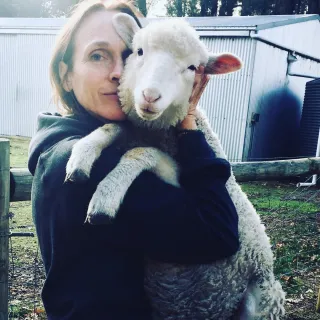
What are your thoughts about passenger rail in the Western District?
Promoting passenger rail in the Western District offers numerous advantages over buses, benefiting both locals and the environment. While buses are affordable, rail travel is more efficient, reliable, and less affected by traffic or weather conditions. It provides a comfortable and consistent option for daily commuters, students, and those needing to access larger cities for education, healthcare, or employment. Rail services also have the capacity to transport more passengers, reducing the need for multiple trips and lowering traffic congestion and emissions.
For locals, passenger rail would enhance regional connectivity, making it easier to travel between rural towns and urban hubs. This improved access could bolster local businesses, encourage eco-tourism, and provide new opportunities for work and recreation. Rail services are also safer and more fuel-efficient, offering a more sustainable alternative to buses and cars.
Furthermore, the reintroduction of rail could ease pressure on regional roads by transporting freight such as agricultural goods, thereby reducing heavy truck traffic. This would not only improve road safety for all users but also lower road maintenance costs. By investing in passenger rail, the Western District could enjoy a sustainable, connected, and economically resilient future for both residents and visitors. There has been previous interest in rail projects in Western Victoria, such as the Western Rail Plan, which aimed to improve regional connectivity and reduce reliance on road transport. I would fully support a return to this campaign.
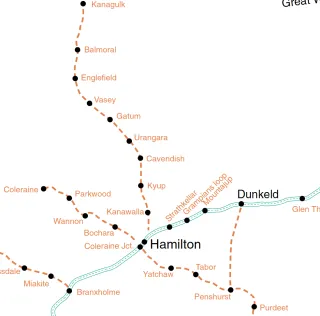
Do you live on a farm?
Yes, we live on a conservation farm. Unlike a lifestyle property, which is typically for passive enjoyment, our farm is actively managed for conservation, wildlife protection, and biodiversity restoration. We focus on restoring endangered areas of forest, creating habitat for native and endangered species, and ensuring that the land can thrive for future generations. This type of farm plays an essential role in the health and wellbeing of the environment, as well as providing a place where visitors can experience a deep connection to nature and belonging to Country. By engaging in active land management, our conservation farm contributes to the preservation of the natural world, much like any traditional farm contributes to food production—only here, the crop we are growing is the future of our ecosystems.
